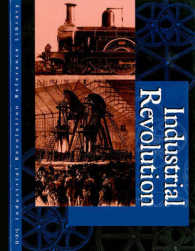- ホーム
- > 洋書
- > 英文書
- > Politics / International Relations
Full Description
During the tumultuous closing decades of the nineteenth century, as the prospect of democracy loomed and as intensified global economic and strategic competition reshaped the political imagination, British thinkers grappled with the question of how best to organize the empire. Many found an answer to the anxieties of the age in the idea of Greater Britain, a union of the United Kingdom and its settler colonies in Australia, Canada, New Zealand, and southern Africa. In The Idea of Greater Britain, Duncan Bell analyzes this fertile yet neglected debate, examining how a wide range of thinkers conceived of this vast "Anglo-Saxon" political community. Their proposals ranged from the fantastically ambitious--creating a globe-spanning nation-state--to the practical and mundane--reinforcing existing ties between the colonies and Britain. But all of these ideas were motivated by the disquiet generated by democracy, by challenges to British global supremacy, and by new possibilities for global cooperation and communication that anticipated today's globalization debates.
Exploring attitudes toward the state, race, space, nationality, and empire, as well as highlighting the vital theoretical functions played by visions of Greece, Rome, and the United States, Bell illuminates important aspects of late-Victorian political thought and intellectual life.
Contents
Acknowledgments ix Abbreviations xi Chapter 1: Introduction: Building Greater Britain 1 The Boundaries of Imperial Discourse: Imagining Greater Britain 3 Greater Britain and Imperial Federation: Variations on a Theme 12 Empire and Ideology 20 Outline of the Book 25 Chapter 2: Global Competition and Democracy 31 Balances of Power: Global Threats and Imperial Responses 35 Democracy and the Moral Economy of Empire 40 Emigration and the Social Question 46 Radical Visions of Greater Britain 55 Chapter 3: Time, Space, Empire 63 "The Eternal Law": Empire and the Vicissitudes of Distance 66 Nature in Flux, c. 1830-1870 74 Imperial Political Thought in the Age of Scientific Utopianism, c. 1870-1900 81 Remaking the Global Political Imagination 89 Chapter 4: Empire, Nation, State 92 The Turn to Federalism 93 Statehood and Empire 98 J. R. Seeley and the "World-State" 108 Race and Nation 113 Chapter 5: The Politics of the Constitution 120 The Virtues of Vagueness 122 Imperial Patriotism and the Constitution 128 Civic Imperialism 137 J. A. Froude and the "Commonwealth of Oceana" 143 Chapter 6: The Apostle of Unity 150 The Love of Humanity: Toward a New "Political Religion" 152 The Political Theology of Nationalist Cosmopolitanism 158 The Darkening of an English Mind 164 On the Necessity of Imperial Federation 168 The Ambiguities of Unity: India and Ireland 171 Chapter 7: The Prophet of Righteousness 179 Colonial Emancipation and the "Glorious Future" of the Anglo-Saxon Race 181 Empire and Character 188 Religion and Liberty 193 India, Ireland, and the Necessity of Despotism 202 Chapter 8: From Ancient to Modern 207 The Functions of the Ancients 210 The End of Empire: Two Models 217 On Novelty 226 Back to the Future 229 Chapter 9: Envisioning America 231 The Model of the Future: America as Template 235 Size Matters: America as Competitor 238 Peace and Justice: The Benefits of Hegemony 247 Through a Glass, Darkly: America as Lesson 250 America, Empire, and Racial Unity 254 Chapter 10: Conclusion: Lineages of Greater Britain 260 Global Consciousness and the Imperial Imagination 260 Reverberations: Some Afterlives of Greater Britain 266 Select Bibliography 273 Index 313








